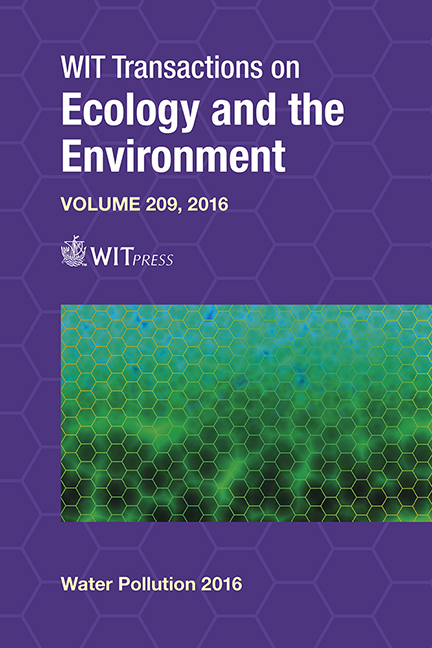Hydrochemical Study Of Groundwaters From Botucatu City, São Paulo State, Brazil
Price
Free (open access)
Transaction
Volume
209
Pages
11
Page Range
103 - 113
Published
2016
Size
748 kb
Paper DOI
10.2495/WP160101
Copyright
WIT Press
Author(s)
C. A. dos Santos, D. M. Bonotto
Abstract
This investigation was carried out at Botucatu city, São Paulo State, Brazil, and involved the study of groundwaters utilized for domestic consumption and industrial purposes. Botucatu city is situated in the recharge area of Guarani Aquifer System (GAS) in which the variegated quartzitic sandstones accumulated by eolian processes under desertic conditions and named Botucatu Formation were firstly described there. Notwithstanding, the municipality is drained by two hydrographic basins (Tietê River-north; Pardo River- south), groundwater has been extensively used there, justifying this investigation. The study involved the hydrochemical and radiometric analysis of 13 groundwater samples collected from tube wells exploiting different formations of the Paraná sedimentary basin: Botucatu, Pirambóia, Serra Geral, Marília, Adamantina, and Santo Anastácio. The pH, silica, major ions, gross alpha radioactivity, gross beta radioactivity and activity concentration of dissolved 210Po and 210Pb were measured at LABIDRO-Isotopes and Hydrochemistry Laboratory, IGCEUNESP- Rio Claro, Brazil, and compared with guideline reference values for drinking water quality. The results of the hydrochemical analysis were compared with the 1469 Ordinance of the Brazilian Health Ministry. The Piper diagram permitted to classify hydrochemically the samples, whereas the radioactivity levels were compared with the WHO guideline reference values for checking if they were appropriate for human consumption in terms of the parameters analyzed.
Keywords
groundwater composition, hydrochemistry, radioactivity, polonium





